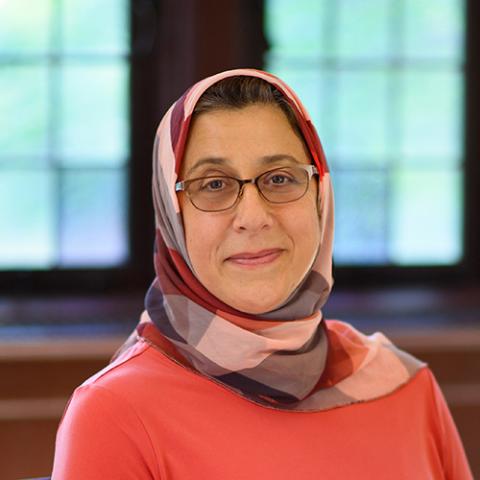International surveys of personal values have existed for almost 40 years (since 1981) in most European countries (the European Values Study or EVS) and in many countries of the world (the World Values Survey), enabling us to observe the evolution of the values of the citizenry in many areas (religion, family, politics, trust, tolerance etc.). Only in much more recent…
Search results for: religion
Fact Sheet: Libya’s Pulse during the COVID-19 pandemic
Background The following are among the key findings from a nationally-representative public opinion survey conducted in Libya by Arab Barometer in October 2020. The survey conducted 1008 phone interviews with randomly-selected Libyan citizens aged 18 or older. This unique survey captures the sentiments of Libyan citizens during the unprecedented times of the COVID-19 pandemic. The survey has a margin of…
Revisiting the Islamist–Secular divide: Parties and voters in the Arab world
Electoral politics in the Arab world are either portrayed as clientelistic affairs void of content or as highly ideological clashes between Islamist and Secular Left forces. Although both arguments are intuitively appealing, the empirical evidence to date is limited. This article seeks to contribute to the debate by investigating the extent of programmatic voter support for Islamist and Secular Left…
Beyond elections: perceptions of democracy in four Arab countries
This article draws on public opinion survey data from Morocco, Tunisia, Egypt, and Jordan to investigate first, whether a “demand for democracy” in the region exists; second, how to measure it; and third, how respondents understand it. The picture emerging from this analysis is complex, eluding the simple dichotomy between prima facie support and second order incongruence with democracy, which characterises current…
Religiosity and Perception About Compatibility of Democracy With Islam: Evidence From the Arab World
Using the data from Arab countries, this article shows that the odds of considering democracy to be consistent with Islam are higher for more religious respondents than that for less religious respondents. This article also shows that this result may be driven by two characteristics of religiosity: frequently reading the Holy Quran (the source of religion) and regularly praying. Our…
Writing the Next Chapters of Morocco and Algeria
Morocco is no stranger to protests, but its situation differs from that of Algeria. A recent article on the BBC using data from the Arab Barometer survey asked the question, “Could Morocco see the next uprising after Sudan and Algeria?” While it was selective in its choice of data points, for example, attitudes toward religion, the point of the article, which…
BBC Radio Scotland’s “Sunday Morning with…” INTERVIEW MICHAEL ROBBINS ON latest public opinion survey findings
BBC News Arabic has just published the results of a survey they commissioned to gain an insight into the views and lives of everyday people across the Arab world. The research collected opinions from over 25,000 people, on everything from religion and politics to sex, love and the status of women. Richard discusses the findings with Dr Michael Robbins, the…
The Road Not Taken: Fostering Research on the Psychology of Religiosity and Spirituality via Underused Representative, Open-Access Datasets (ROADs)
Psychologists studying religiosity and spirituality (R/S) often face several challenges when conducting their research, such as collecting data from nationally representative samples, cross-cultural generalizability, statistical power, and integrated multilevel approaches. We examined one potential solution—the use of Representative, Open-Access Datasets (ROADs), which are currently underutilized. In this article, we define ROADs; discuss affordances, obstacles, and best practices in using them;…
Arab Public Opinion: Between Attachment to Islam and Commitment to Democracy
“International surveys of personal values have existed for almost 40 years (since 1981) in most European countries (the European Values Study or EVS) and in many countries of the world (the World Values Survey), enabling us to observe the evolution of the values of the citizenry in many areas (religion, family, politics, trust, tolerance etc.). Only in much more recent…
Jamal named next dean of the Princeton School of Public and International Affairs
Amaney Jamal, the Edwards S. Sanford Professor of Politics and director of the Mamdouha S. Bobst Center for Peace and Justice, has been named dean of the Princeton School of Public and International Affairs (SPIA).Her appointment is effective Sept. 1. Jamal is a longtime Princeton faculty member, whose research and teaching focuses on the Middle East and North Africa, political…
Morocco : Key Findings on Public Opinion 2018-2019
Executive Summary Beginning in February 2019, many citizens began to take to the streets which ultimately resulted in the resignation of President Abdelaziz Bouteflika. On the eve of the protests, Algerian citizens were not only deeply frustrated with economic conditions, but with the system as a whole. Perceptions about the state of the economy and optimism about the country’s future…
Are Islamists in the MENA more Pro-Democracy than Seculars?
The recent decades have witnessed an increase in the visibility of political parties with conservative backgrounds in the Middle East and North Africa (MENA) region. These parties have had varied experiences in government, ranging from subordination (E.g the Muslim Brotherhood in Egypt) to power-sharing (e.g Ennahda in Tunisia) to dominance (the AKP in Turkey). These varied experiences were shaped by…
Godly Governance
This paper seeks to investigate Muslim support for religious governance in Arab Muslim-Majority countries, focusing on the role of personal piety. It does so by exploring the relevant literature and deriving hypotheses from it, which are subsequently tested by using survey data of the Arab Barometer (Wave III and IV). The following analysis conducts hierarchical linear regression with the dependent…
